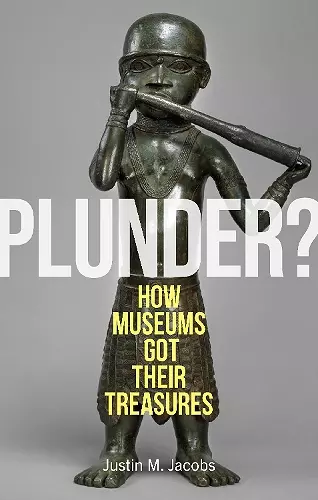Plunder?
How Museums Got Their Treasures
Format:Hardback
Publisher:Reaktion Books
Published:1st Aug '24
Should be back in stock very soon

In this thought-provoking new work, historian Justin M. Jacobs challenges the widely accepted belief that many of Western museums’ treasures were acquired by imperialist plunder and theft. His account re-examines the allegedly immoral provenance of Western collections, advocating for a nuanced understanding of how artefacts reached Western shores. Jacobs examines the perspectives of Chinese, Egyptian and other participants in the global antiquities trade over the past two and a half centuries, revealing that Western collectors were often willingly embraced by locals. This collaborative dynamic, largely ignored by contemporary museum critics, unfolds a narrative that may lead to hope and promise for a brighter, more equitable future.
ISBN: 9781789149487
Dimensions: unknown
Weight: unknown
216 pages